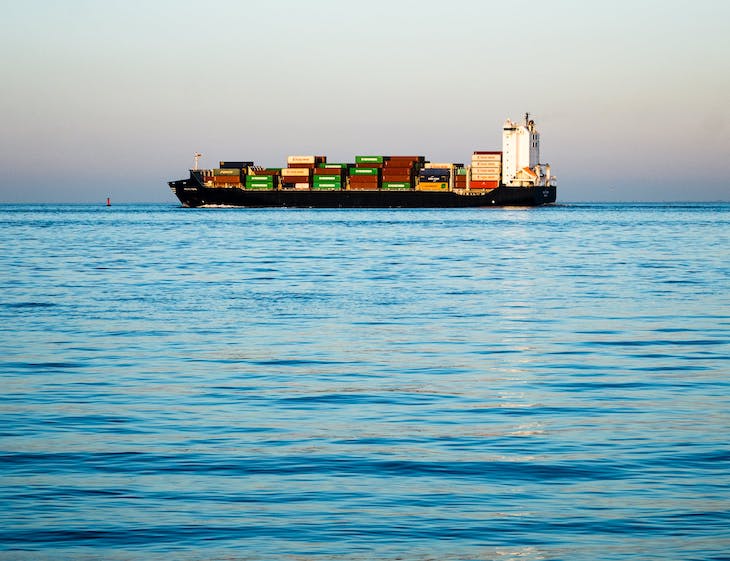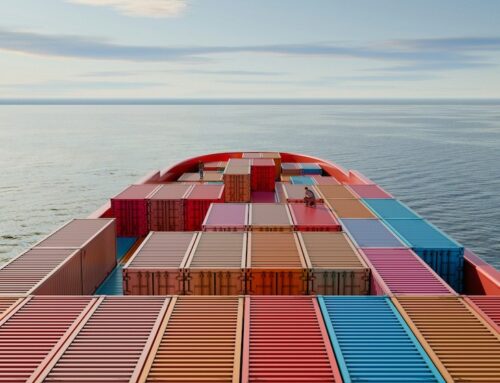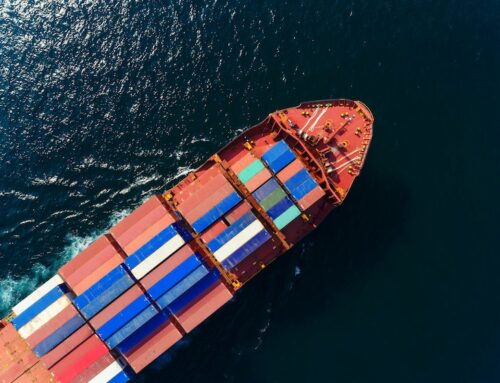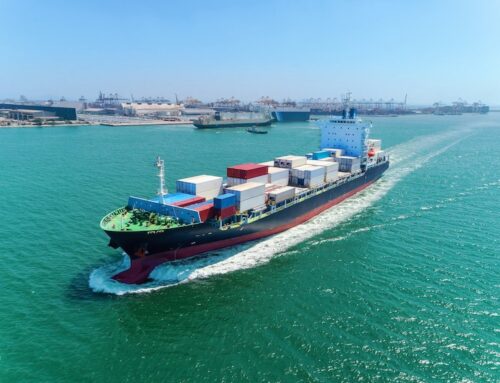Despite US-led defensive military endeavours, Houthi rebel assaults on commercial ships traversing the Red Sea persist, resulting in shipments delays, squeezed capacity and container shortages.
In the past few weeks, both Houthi rebels and the US have initiated fresh attacks, and currently, there are no indications of a de-escalation in the ongoing conflict. Since November 2023, an estimated 40 commercial vessels have been targeted, just last week, a missile strike forced two Maersk vessels to discontinue their naval convoy and hastily depart from the Red Sea.
Shipment Delays
Due to the risk of attacks, ships have been bypassing the Red Sea route, opting for the significantly longer journey around the southern tip of Africa. This diversion adds at least an additional 14 days of transit for cargo destined for Europe and the US, also incurring increased fuel and operational costs.
In response to the ongoing Suez Canal diversions, carriers are adapting their networks with adjustments now being considered semi-permanent changes. The prolonged transits are having ripple effects across supply chains, leading to operational disruption and delays in shipments.
The current delays and expected extended transit times are causing disruption for companies worldwide. Some prominent corporations, including Tesla, Volvo, and Michelin, have reported production halts due to component shortages resulting from shipment delays. Meanwhile, IKEA and other global retailers are cautioning about potential product delays in the coming months.
Capacity Squeeze
The recent decline in vessel capacity marks the second-largest drop in recent years, with the ‘Ever Given’ incident in the Suez Canal during March 2021 being the only single event that had a more substantial impact. However, it’s important to note that the current demand is lower. During the pandemic years, demand was driven by an unprecedented spending spree among global consumers, which is not the case this time.
A significant capacity shortage along the Asia-Europe trade routes, coupled with a notable surge in rates, has been triggered by heightened demand resulting from the increased influx of cargo in the weeks leading up to the Chinese New Year. This surge in demand, combined with the ongoing crisis, has generated the urgent requirement for additional vessels to operate on the Asia-Europe shipping lane.
Container Shortages
With containers sitting on vessels for a significant additional number of days due to longer transit times, the likelihood of container shortages continuing to escalate is high. Equipment shortages have persisted in Chinese ports for a number of weeks, and this scarcity has recently extended to other regions in the Indian Subcontinent. The Chinese New Year should provide a window where some equipment equilibrium may be obtained, but only time will tell whether this becomes achievable.
Longer Term Impact
The Suez Canal plays a crucial role in international shipping, disruptions in this vital passage have a catastrophic, cascading impact globally, as evidenced by the extensive blockage caused by the grounding of the enormous Ever Given container ship. The current difficulties compound the existing disruptions to global trade stemming from the conflict in Ukraine and the unusually low water levels in the Panama Canal. These multifaceted impacts are contributing to global delays and disruption, rising costs and the potential for inflation.
With shipping lines not expected to recommence Red Sea transits until operationally feasible and until safe passage is assured, we expect the ongoing instability to continue to impact overall operational efficiency, creating disruption and delays across global supply chains for some time to come.
Our focus remains on monitoring the ever-changing situation and directing our efforts on minimising impacts for customers. Should you have any questions or concerns about your shipment, please get in touch with our Customer Service Team on 01376 533039.








